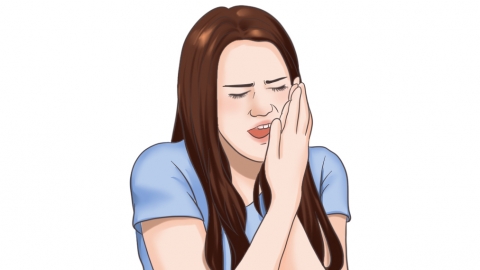How to quickly relieve tooth pain
Generally speaking, there is no such thing as instant tooth pain relief. Tooth pain may be caused by tooth sensitivity, wisdom tooth eruption, dental caries, pulpitis, periodontal abscess, etc. Treatment can be carried out under a doctor's guidance through general treatment, physical therapy, medication, and other methods. If discomfort occurs, timely medical attention is recommended. Detailed analysis is as follows:

1. Tooth Sensitivity
When dentinal tubules are directly exposed to the oral environment, such as improper brushing, gum recession, or tooth wear, stimuli can be transmitted through the dentinal tubules to the dental pulp, triggering pulp nerve impulses and resulting in tooth pain. In daily life, fluoride-containing desensitizing toothpaste can be used, along with the Bass brushing technique, to avoid excessive tooth wear and reduce consumption of excessively cold, hot, or acidic foods.
2. Wisdom Tooth Eruption
During the eruption of wisdom teeth, due to insufficient space, the wisdom teeth may partially or completely become impacted. The gum tissue around the wisdom tooth can easily form a blind pouch where food debris and bacteria tend to accumulate, triggering an inflammatory response and causing pain. It is recommended to maintain good oral hygiene and consult a doctor to evaluate the growth of the wisdom teeth before or during eruption. Preventive extraction may be necessary.
3. Dental Caries
Dental caries are mainly caused by oral bacteria metabolizing sugars from food to produce acidic substances that gradually erode the hard tissues of the teeth. When the cavity develops to a certain depth and approaches the pulp, external stimuli can be transmitted through the dentinal tubules to the pulp, causing pain. Symptoms may also include black cavities on the tooth surface and sensitivity to cold, hot, sour, or sweet stimuli. Under medical guidance, decayed tissue should be removed and the cavity restored with resin material. Anti-inflammatory medications such as Amoxicillin Capsules, Cefdinir Capsules, and Azithromycin Capsules may also be used as directed.
4. Pulpitis
Pulpitis may result from untreated dental caries, where bacteria further infect the pulp. Inflammation within the pulp chamber causes pulp tissue congestion and edema, increasing pressure within the pulp chamber and compressing the nerves, leading to severe pain. Symptoms may also include spontaneous pain, worsening at night, and unlocalized pain. It is recommended that under a doctor's guidance, pulp chamber opening and drainage be performed first to relieve pressure within the pulp chamber, followed by root canal treatment to completely remove the infected pulp. During treatment, medications such as Ibuprofen Sustained-Release Capsules, Artificial Cow-bezoar Metronidazole Capsules, and Aspirin Capsules may be taken orally under medical guidance to alleviate pain and control inflammation.
5. Periodontal Abscess
A periodontal abscess may develop due to long-term accumulation of dental calculus and plaque, which leads to inflammation of the periodontal tissues. When an abscess forms, the increased pressure in the periodontal tissues stimulates the nerves, causing pain. Symptoms such as redness and swelling of the gums, bleeding, and pus discharge from periodontal pockets may also occur. Under a doctor's supervision, incision and drainage can first be performed, followed by basic periodontal treatment such as scaling and root planing to remove calculus and plaque. Anti-inflammatory medications such as Metronidazole Tablets, Ornidazole Dispersible Tablets, and Cefixime Capsules may also be prescribed for oral administration under medical guidance.
In daily life, maintain good oral hygiene and avoid consuming spicy, excessively hot, cold, or hard foods to prevent irritation that may worsen tooth pain.







